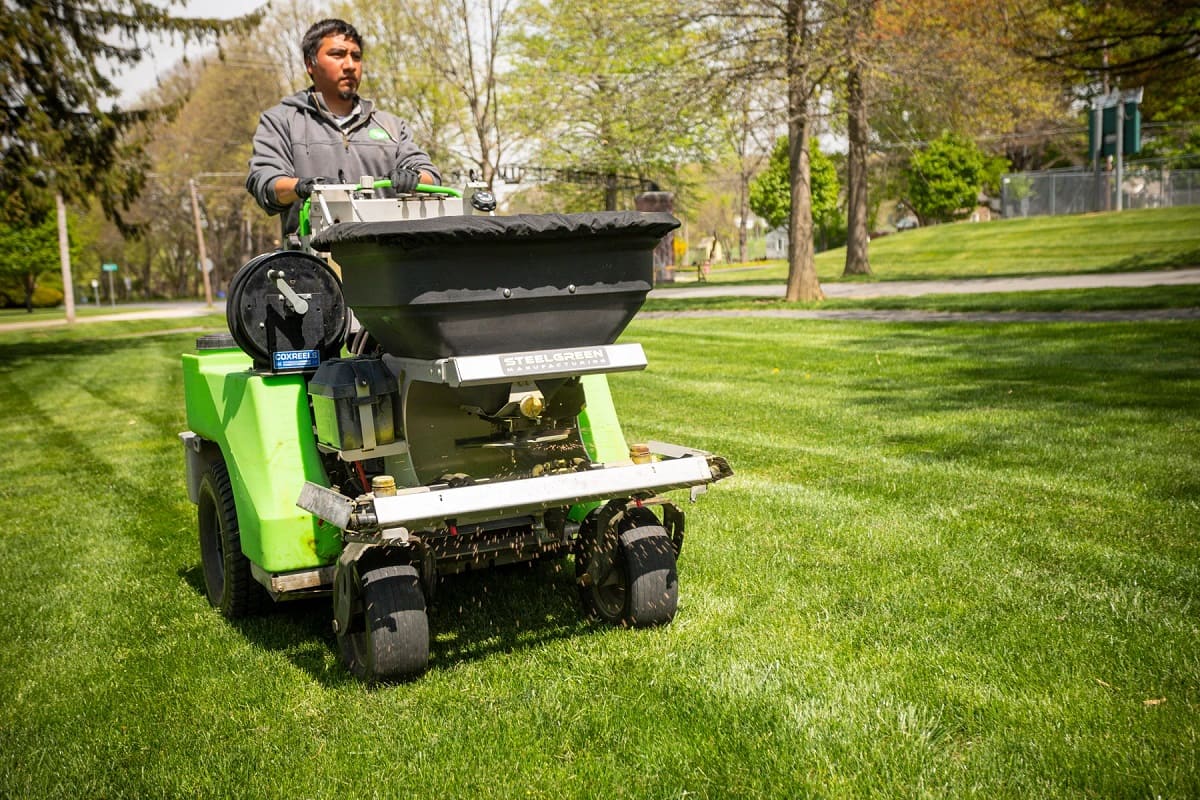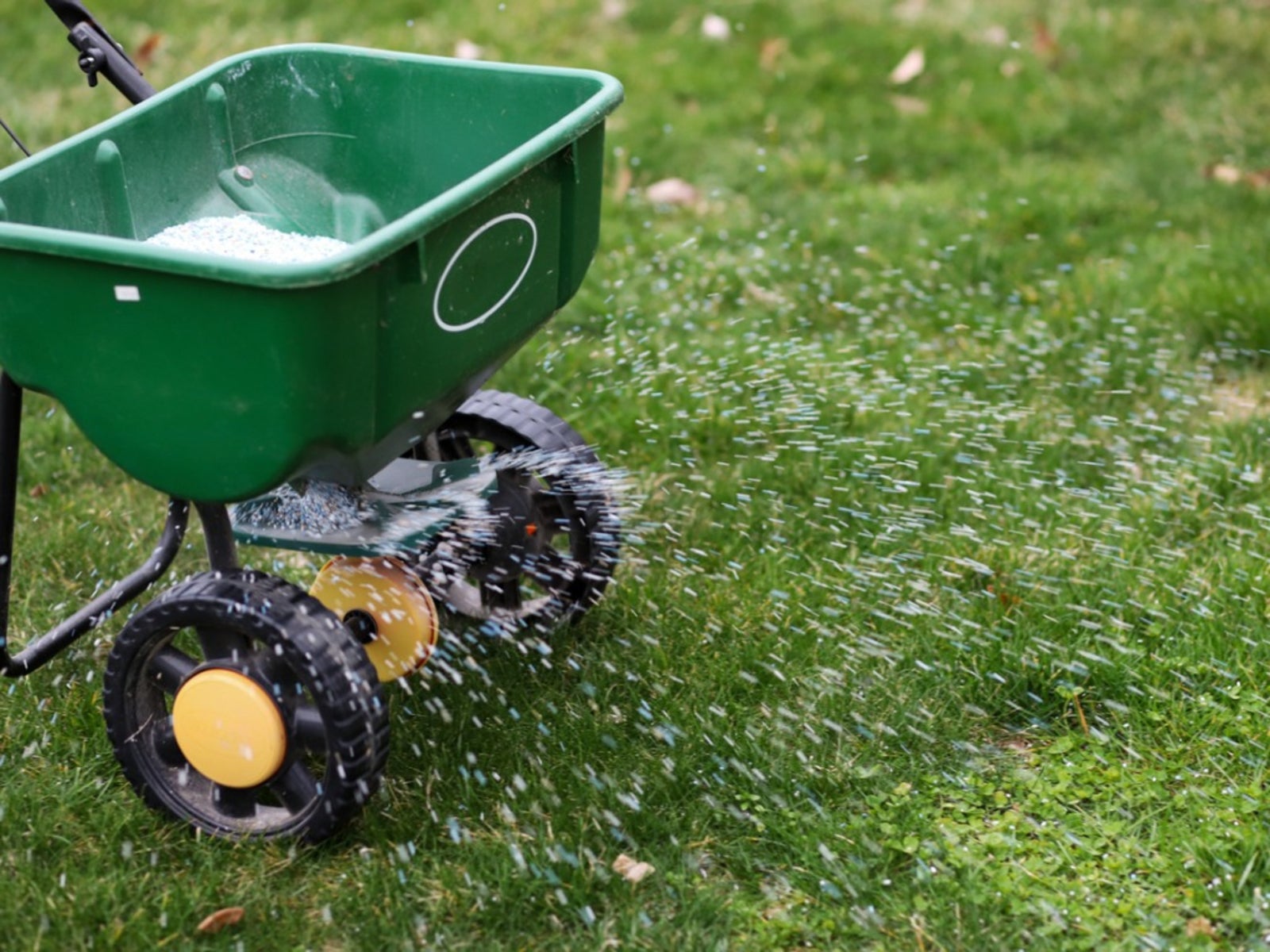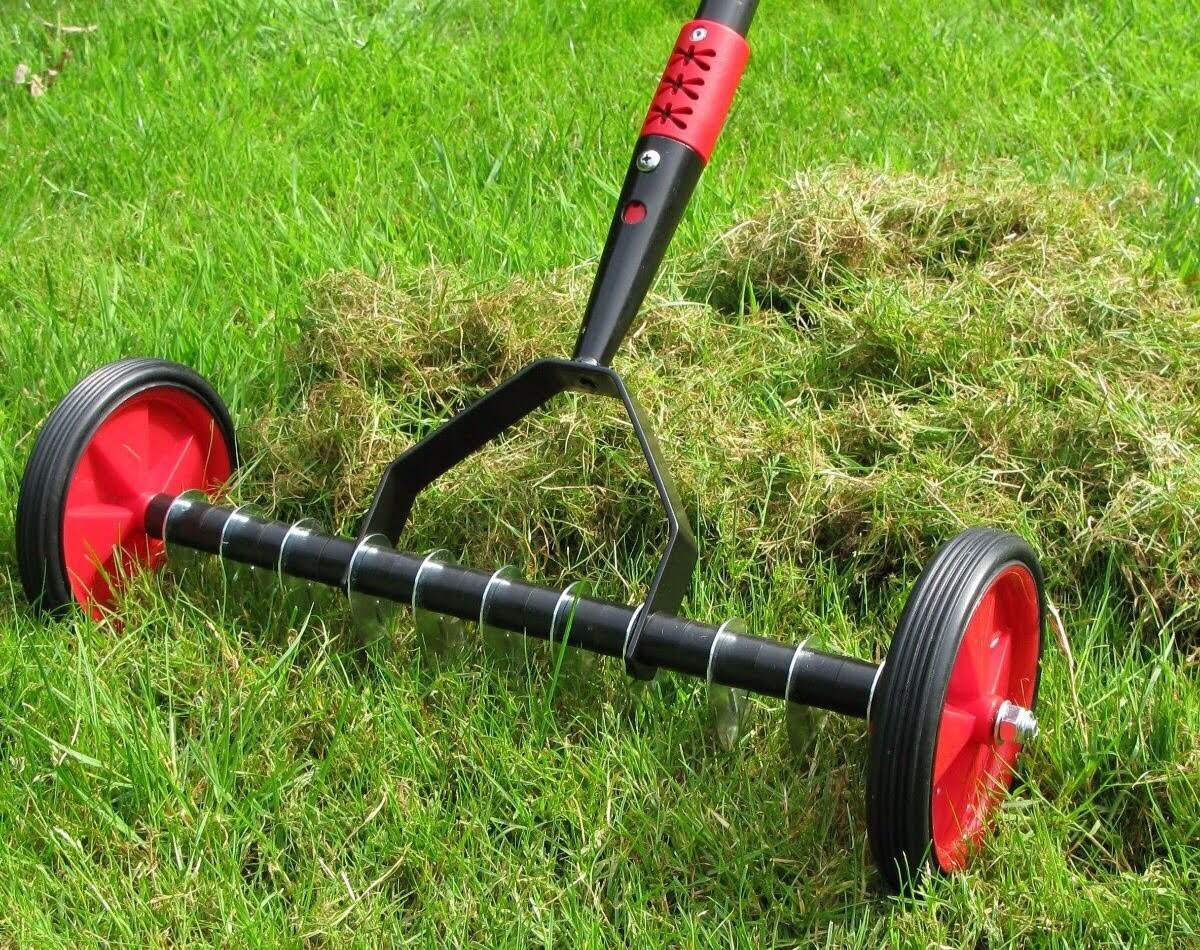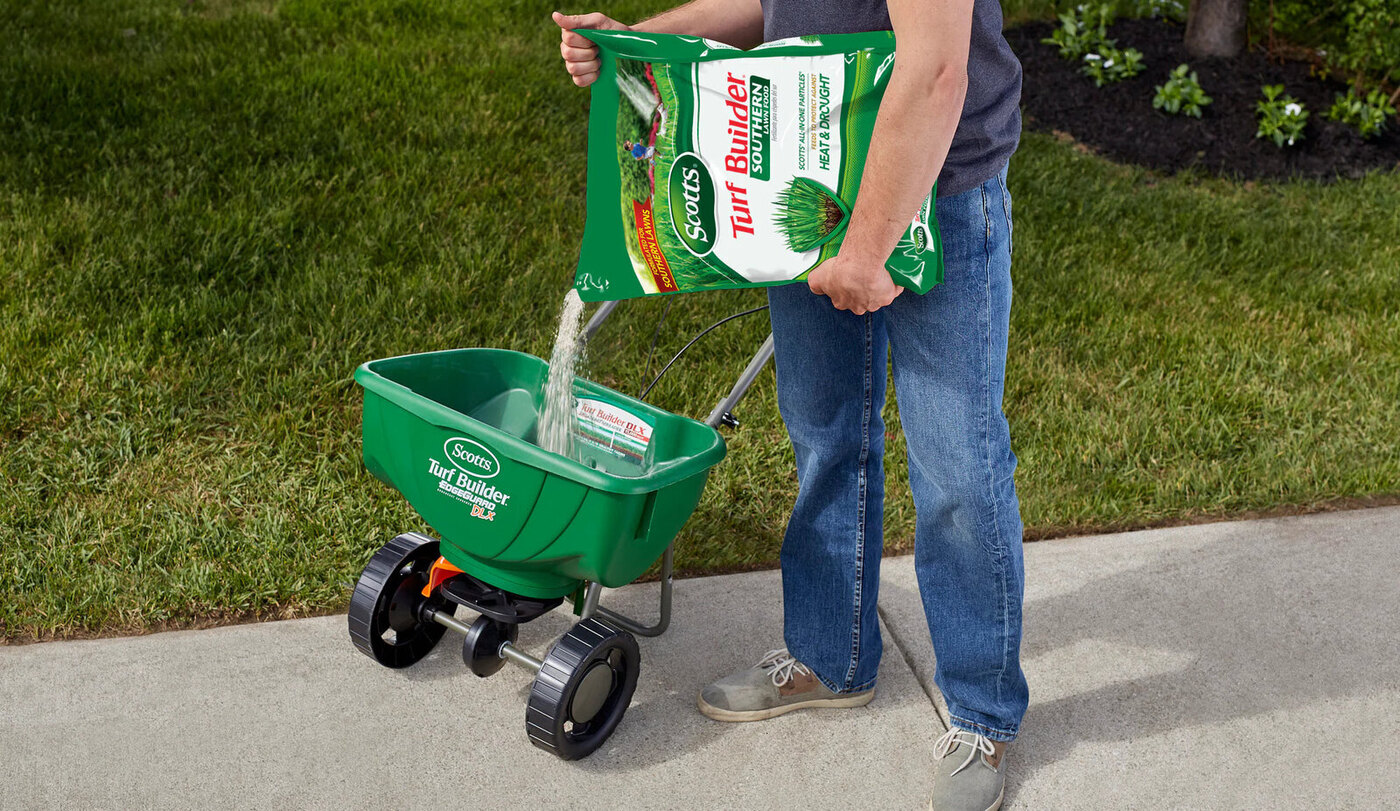Home>Garden Essentials>What Are Lawn Care Jobs Like


Garden Essentials
What Are Lawn Care Jobs Like
Modified: March 7, 2024
Discover what it's like to work in lawn care jobs and get insights on the tasks, responsibilities, and skills required in maintaining and caring for gardens. Find out how to excel in the garden industry.
(Many of the links in this article redirect to a specific reviewed product. Your purchase of these products through affiliate links helps to generate commission for Storables.com, at no extra cost. Learn more)
Introduction
Welcome to the world of lawn care! Whether you have a green thumb or simply enjoy spending time outdoors, lawn care jobs offer a fantastic opportunity to flex your gardening skills and connect with nature. From maintaining pristine lawns to transforming landscapes, working in the lawn care industry can be both fulfilling and rewarding.
In this article, we will explore the various aspects of lawn care jobs, including the responsibilities, required skills, benefits, challenges, and the job outlook in the industry. So, grab your gardening gloves and let’s dive into the lush world of lawn care!
But first, let’s clear the air – what exactly does a lawn care job entail? At its core, lawn care jobs revolve around the maintenance and landscaping of outdoor spaces. This can include mowing lawns, planting and caring for flowers and shrubs, raking leaves, trimming hedges, and maintaining irrigation systems.
As a lawn care professional, you will have the opportunity to work in various settings, such as private residences, commercial properties, parks, golf courses, and even sports stadiums. Each has its own unique set of challenges and requirements, but all require a passion for nature and a keen eye for detail.
Whether you choose to work for a landscaping company or as a self-employed contractor, the responsibilities of a lawn care job can be physically demanding. You will spend a significant amount of time outdoors, often in all types of weather conditions. So, be prepared to embrace the elements and get your hands dirty!
Communication skills are also crucial in lawn care jobs, as you will often interact with clients to understand their landscaping requirements, provide recommendations, and ensure their satisfaction. Additionally, being able to work independently, follow instructions, and prioritize tasks will contribute to your success in this industry.
Now that we have a general understanding of the responsibilities involved, let’s explore the essential skills and qualifications required to excel in the world of lawn care.
Key Takeaways:
- Lawn care jobs involve tasks like mowing, planting, and maintaining outdoor spaces. Skills in plant knowledge, landscaping, and physical stamina are essential for success in this fulfilling and creative industry.
- Working in lawn care offers benefits like connecting with nature, physical activity, and career growth opportunities. Despite challenges like physical demands and weather conditions, the industry’s job outlook is promising with potential for higher earnings.
Read more: How To Price Lawn Care Jobs
Responsibilities of Lawn Care Jobs
When it comes to lawn care jobs, there is a wide range of responsibilities that you may encounter. These tasks can vary depending on the specific job role and the needs of the client or employer. However, there are a few core responsibilities that are common in most lawn care positions:
- Mowing and Trimming: One of the primary tasks in lawn care is mowing and trimming the grass. This involves using lawnmowers, trimmers, and edgers to maintain an even and tidy appearance.
- Planting and Pruning: Another important responsibility is planting and pruning flowers, trees, and shrubs. This includes selecting appropriate plants for the climate, ensuring proper spacing, and maintaining their health and aesthetics through regular pruning.
- Watering and Irrigation: Lawn care professionals are responsible for establishing and maintaining proper watering and irrigation systems. This may involve installing sprinklers, adjusting water flow, and monitoring moisture levels to ensure optimal plant health.
- Weeding and Pest Control: Keeping a lawn free of weeds and pests is essential for maintaining its beauty. This involves identifying and removing weeds, using organic or chemical products for pest control, and implementing preventive measures to minimize future infestations.
- Landscape Design and Installation: In some lawn care jobs, you may be involved in landscape design and installation. This can include planning and creating outdoor spaces, installing walkways or patios, and incorporating elements such as rock gardens or water features.
- Leaf and Debris Cleanup: As the seasons change, leaves and debris can accumulate on lawns. As a lawn care professional, you will be responsible for raking and removing these materials to maintain a clean and tidy appearance.
- Equipment Maintenance: Taking care of the tools and equipment used in lawn care is essential to ensure their longevity and effectiveness. This includes regular cleaning, sharpening blades, and performing routine maintenance tasks.
These responsibilities require a combination of physical stamina, technical knowledge, and attention to detail. As you gain experience in the field, you will develop a deeper understanding of different plant species, soil types, and landscaping techniques, allowing you to provide expert care and advice to your clients.
Now that we have explored the primary responsibilities, let’s delve into the essential skills and qualifications needed to thrive in lawn care jobs.
Skills and Qualifications Required for Lawn Care Jobs
Working in lawn care requires a combination of practical skills, horticultural knowledge, and a passion for the outdoors. While formal education is not always a requirement, there are certain skills and qualifications that can greatly enhance your chances of success in this industry. Let’s take a closer look:
- Plant and Horticultural Knowledge: A solid understanding of different plant species, their growth requirements, and common pests and diseases is essential. This knowledge will allow you to select appropriate plants for different environments, diagnose and treat issues, and provide expert advice to clients.
- Landscaping and Design: Familiarity with landscaping principles, such as design aesthetics, space planning, and plant placement, can set you apart in the lawn care industry. Being able to create visually appealing and functional outdoor spaces will be highly valued by clients.
- Equipment Operation and Maintenance: Proficiency in operating various lawn care equipment, including lawnmowers, trimmers, blowers, and irrigation systems, is crucial. Additionally, knowing how to perform routine maintenance tasks and troubleshoot common equipment issues will ensure smooth operations.
- Physical Stamina and Fitness: Lawn care jobs often involve physical labor, such as lifting heavy equipment, walking long distances, and standing for extended periods. Being physically fit and able to withstand the demands of the job is important for your own safety and productivity.
- Attention to Detail: Paying close attention to detail is vital in lawn care, as even the smallest mistake can impact the overall appearance and health of a lawn. From precise trimming to meticulous weeding, having an eye for details will ensure high-quality results.
- Communication and Customer Service: Strong communication skills are necessary when working with clients to understand their landscaping needs, provide recommendations, and address any concerns. Excellent customer service skills will help you build a loyal client base and establish a reputable reputation.
- Time Management and Organization: Being able to prioritize tasks, manage your schedule, and work efficiently is essential in lawn care jobs. You may have multiple clients and projects to handle simultaneously, so effective time management skills will greatly contribute to your success.
While formal education in horticulture or landscaping can provide a solid foundation, hands-on experience and a genuine passion for the work are equally valuable. Participating in workshops, obtaining certifications, and staying updated with industry trends and best practices will showcase your commitment to professional growth.
Now that we have covered the necessary skills and qualifications, let’s explore the benefits of working in the lawn care industry.
Benefits of Working in Lawn Care
Working in the lawn care industry offers a plethora of benefits that go beyond the satisfaction of working with nature and creating beautiful outdoor spaces. Whether you are interested in pursuing it as a career or as a part-time job, here are some of the advantages you can expect:
- Connection with Nature: Lawn care jobs provide an incredible opportunity to spend your working hours in the great outdoors. You’ll have the chance to breathe in fresh air, soak up the sun, and connect with the natural world around you. This can greatly contribute to your overall well-being and mental health.
- Physical Activity: If you enjoy being active and staying fit, lawn care jobs offer the perfect combination of physical labor and exercise. Manual tasks such as mowing, trimming, and carrying equipment will keep you on your feet and help you maintain a healthy lifestyle.
- Creative Expression: Working in lawn care allows you to showcase your creativity by transforming outdoor spaces into stunning landscapes. From selecting plant compositions to designing functional layouts, you have the freedom to create unique and visually appealing environments.
- Pride and Satisfaction: There is a sense of pride and satisfaction that comes from seeing a well-maintained lawn or a beautifully landscaped garden that you have nurtured. The tangible results of your hard work will bring joy to both yourself and your clients.
- Career Growth Opportunities: The lawn care industry offers ample opportunities for career growth and advancement. As you gain experience and build your skill set, you can progress to higher positions such as a landscape designer, horticulturalist, or even start your own landscaping business.
- Flexible Work Schedule: Many lawn care jobs offer flexible work schedules, which can be particularly appealing for individuals who are looking for part-time or seasonal employment. You may have the opportunity to set your own hours or work around other commitments.
- Social Interaction: If you enjoy meeting new people and building relationships, lawn care jobs provide ample opportunities for social interaction. You will have the chance to work with clients, collaborate with fellow landscapers, and engage with individuals who share a love for outdoor spaces.
Working in lawn care can be a truly rewarding experience, offering a unique blend of nature, physical activity, and creative expression. It allows you to make a positive impact on the environment while enjoying the numerous benefits that come with working in the great outdoors.
Now that we understand the advantages, let’s explore the challenges that you may encounter in lawn care jobs.
When working in lawn care, be prepared for physical labor, working outdoors in various weather conditions, and using equipment such as mowers and trimmers. It’s important to have good attention to detail and be able to follow safety protocols.
Challenges of Lawn Care Jobs
While working in the lawn care industry can be fulfilling and enjoyable, like any job, it comes with its own set of challenges. It’s important to be aware of these challenges to prepare yourself and find ways to overcome them. Let’s take a closer look:
- Physical Demands: Lawn care jobs often involve manual labor, which can be physically demanding. The repetitive nature of tasks such as mowing, digging, and carrying heavy equipment can put strain on your body. It’s crucial to take proper care of yourself by practicing good posture, lifting correctly, and engaging in regular exercise to prevent injuries.
- Weather Conditions: As a lawn care professional, you’ll be working outdoors, exposed to various weather conditions. Whether it’s scorching hot sun, pouring rain, or freezing temperatures, you’ll need to adapt and work effectively in all types of weather. Wearing appropriate protective clothing and staying hydrated are essential for your comfort and well-being.
- Time Constraints: Lawn care jobs often require working within specific deadlines. You may have multiple clients or projects to complete within a limited time frame. This can be challenging, especially when unexpected issues arise or there are weather-related delays. Effective time management and organizational skills are key to managing your workload efficiently.
- Dealing with Client Expectations: Each client will have their own expectations and preferences when it comes to their outdoor spaces. It can be challenging to meet these expectations and ensure client satisfaction, especially when dealing with differing opinions or requests. Clear communication and active listening skills will help address any concerns and ensure you understand and fulfill your clients’ needs.
- Seasonal Variations: The demands of lawn care jobs can vary greatly depending on the season. Spring and summer may require more regular maintenance and plant care, while fall and winter may involve more landscaping cleanup or dormant plant care. Adapting to these seasonal variations and staying knowledgeable about appropriate tasks for each season is crucial.
- Pests and Disease Management: Dealing with pests and diseases that can impact the health of lawns and plants is one of the challenges in lawn care. Identifying and effectively treating these issues while minimizing damage to the surrounding environment requires knowledge and expertise. Regular monitoring, preventive measures, and staying updated on best practices for pest and disease control will help you overcome this challenge.
- Business Management (for self-employed professionals): If you decide to operate as a self-employed lawn care professional, you’ll also face the challenges of managing your own business. This includes marketing, financial management, customer acquisition, and administrative tasks. Developing effective business skills and seeking resources or guidance to support you in these areas will be essential for success.
While these challenges may seem daunting, they can also present opportunities for growth and learning. By being prepared, adaptable, and continuously improving your skills, you can overcome these obstacles and thrive in the lawn care industry.
Now that we’ve explored the challenges, let’s shift our focus to the job outlook and salary potential in the lawn care industry.
Job Outlook and Salary in the Lawn Care Industry
The demand for lawn care services continues to grow as more people recognize the importance of maintaining well-groomed outdoor spaces. With an increasing focus on environmental sustainability and the desire for aesthetically pleasing landscapes, the job outlook in the lawn care industry is promising.
According to the Bureau of Labor Statistics, employment of landscaping and groundskeeping workers, which includes lawn care professionals, is projected to grow 10 percent from 2020 to 2030, faster than the average for all occupations. This growth is driven by the need for lawn care services in both residential and commercial sectors.
As for salary, the earnings in the lawn care industry can vary based on factors such as location, experience, specialization, and the size of the company you work for. The average hourly wage for a lawn care worker ranges from $12 to $18, depending on these factors.
If you choose to pursue a specialized role, such as a landscape designer or a horticulturalist, the earning potential can be higher. These positions often require additional education, certifications, and experience, but can lead to higher pay and career advancement opportunities.
Furthermore, if you decide to start your own lawn care business, the earning potential can be significant. Self-employed professionals have the ability to set their own rates and build a client base, allowing them to increase their income based on the number of clients they serve and the services they provide.
It’s important to keep in mind that working in the lawn care industry often includes seasonal fluctuations. The demand for services may be higher in the spring and summer months, resulting in increased workload and income during that period. However, in colder climates or during the winter season, the demand may decrease, leading to fewer job opportunities and potentially reduced income during those times.
In summary, the job outlook for lawn care professionals is favorable, with a growing demand for their services. The salary in the industry can vary depending on factors such as experience, specialization, and employment status (self-employed or employed by a company). As with any profession, continuous improvement of skills, gaining experience, and staying updated with industry trends can contribute to higher earning potential and career advancement.
Now that we have explored the job outlook and salary potential, let’s wrap up this article.
Conclusion
Working in the lawn care industry offers a unique blend of creativity, physical activity, and connection with nature. Whether you are passionate about landscaping, enjoy working with plants, or simply love spending time outdoors, lawn care jobs provide a fulfilling and rewarding career path.
Throughout this article, we have explored the various aspects of lawn care jobs, including the responsibilities, required skills, benefits, challenges, and the job outlook in the industry. From mowing and trimming lawns to designing and installing landscapes, lawn care professionals play a vital role in creating and maintaining beautiful outdoor spaces.
The responsibilities of a lawn care job range from basic maintenance tasks like mowing, trimming, and watering, to more specialized tasks such as landscape design and pest control. Strong skills in plant and horticultural knowledge, landscaping, equipment operation, attention to detail, communication, and time management are essential for success in this field.
Working in lawn care offers many benefits, including the opportunity to connect with nature, engage in physical activity, express your creativity, experience pride and satisfaction in your work, and enjoy a flexible work schedule. It also provides room for career growth and advancement, allowing you to progress to higher positions or start your own landscaping business.
However, lawn care jobs also come with their unique set of challenges. Physical demands, dealing with inclement weather, managing client expectations, and addressing pest and disease issues are a few of the obstacles you may encounter. Overcoming these challenges requires resilience, adaptability, and continuous professional development.
Despite the challenges, the job outlook in the lawn care industry is promising, with a projected growth in employment opportunities. The salary in the industry can vary based on factors such as location, experience, specialization, and employment status. Self-employed professionals have the potential to earn higher incomes by setting their own rates and building a loyal client base.
In conclusion, working in lawn care is a fulfilling and rewarding career choice for those who have a passion for the outdoors, a love for plants, and a desire to create and maintain beautiful landscapes. By developing the necessary skills, embracing the benefits, and overcoming the challenges, you can thrive in the lawn care industry and make a positive impact in the world of gardening and landscaping.
So, put on your gardening gloves, grab your tools, and embark on a journey of creating stunning outdoor spaces through the art of lawn care!
Frequently Asked Questions about What Are Lawn Care Jobs Like
Was this page helpful?
At Storables.com, we guarantee accurate and reliable information. Our content, validated by Expert Board Contributors, is crafted following stringent Editorial Policies. We're committed to providing you with well-researched, expert-backed insights for all your informational needs.















0 thoughts on “What Are Lawn Care Jobs Like”